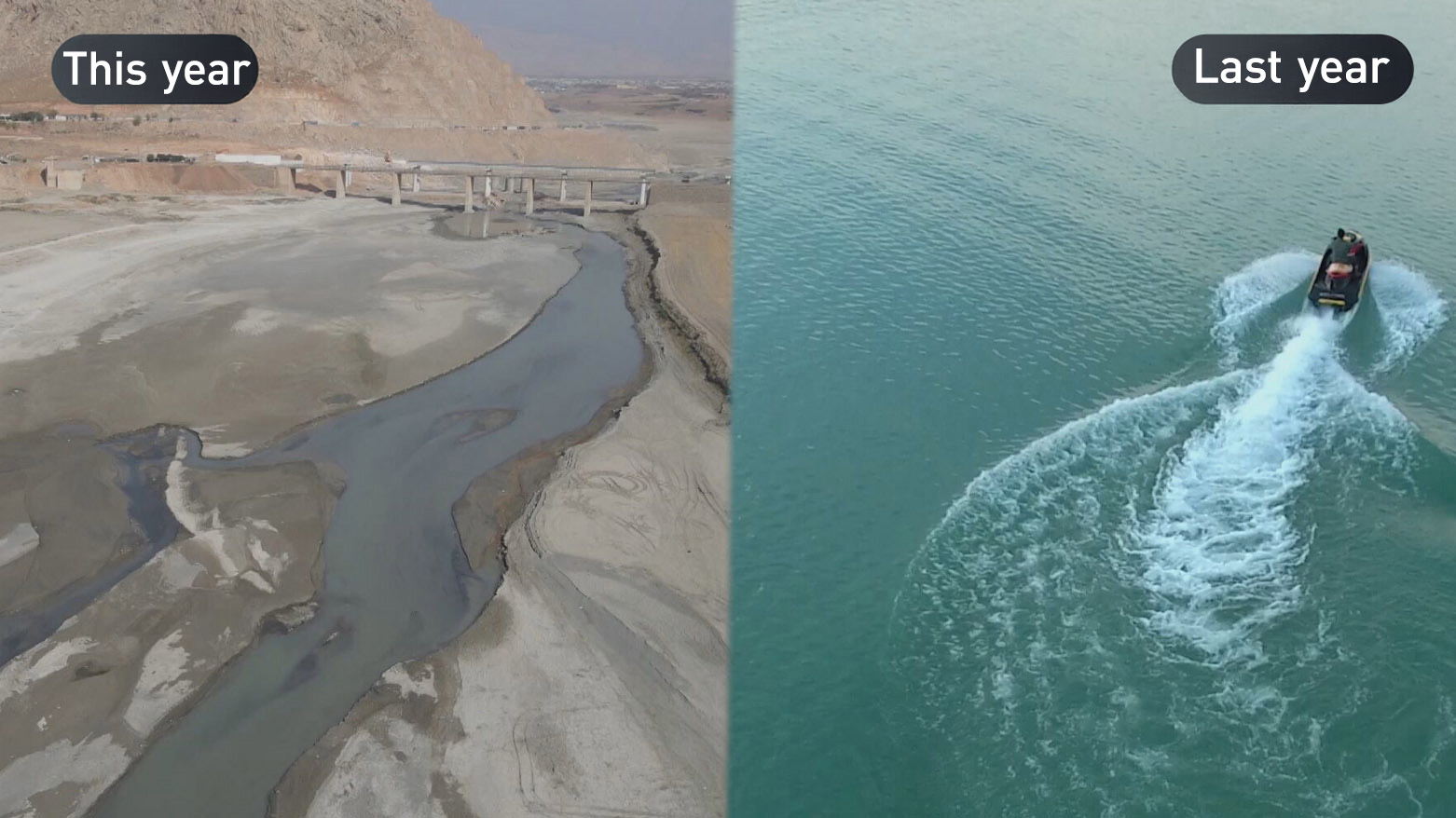Water Shortage Drains Raparin’s Tourism Season
Tourism in Raparin has plummeted due to drought and falling water levels in key springs and rivers, notably around Lake Dukan. Local officials warn that without urgent climate and infrastructure intervention, the region’s tourism and agriculture sectors face long-term decline.

By Kamaran Aziz
ERBIL (Kurdistan24) – Tourism in the Independent Administration of Raparin has seen a significant decline this year due to reduced water levels in local springs and reservoirs, with many of the region’s popular destinations relying on nearby water sources.
This year’s sharp decrease in rainfall has severely impacted the water level of the Little Zab River in the Dukan-Raniya area, compared to the same period last year. The drop has had a direct negative impact on the number of visiting tourists, according to local stakeholders.
Shakhawan Marcos, a local tourism entrepreneur who holds an official tourism license, told Kurdistan24’s reporter Aras Ameen that the drop in water levels has caused a major decline in tourist arrivals. “Last year, we saw a surge in tourism, our sites were fully booked,” Marcos said. “But this year, due to the sharp fall in spring water levels, the number of tourists has dropped significantly.”
Marcos operates a popular tourism project near the Little Zab River and Lake Dukan, which previously provided employment for many locals.
The Raparin Region, known for its mountainous terrain and abundance of natural springs, hosts dozens of tourist sites clustered near these water sources. The drop in spring water levels has affected the entire ecosystem of tourism, agriculture, and local livelihoods.
Aram Pirot, Director General of Agriculture for the Raparin Independent Administration, confirmed the downturn in comments to Kurdistan24. “We have over 100 tourist locations across our region, most of which thrive in the summer months,” he said. “This year’s drought has had a direct impact on tourist activity.”
According to Raparin tourism statistics, more than 7,000 tourists have visited the region in the hope of visiting the natural resorts across Raparin and the broader Kurdistan Region. However, officials warn that without urgent intervention, climate-driven water scarcity could cripple the local tourism economy in the coming years.